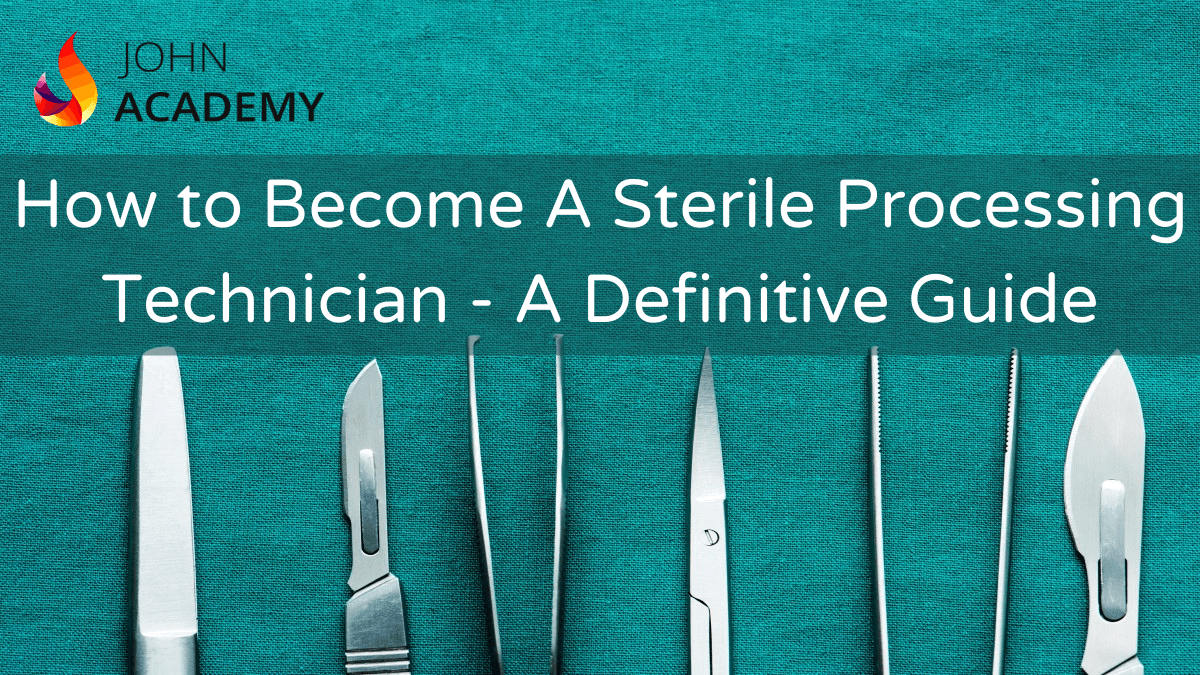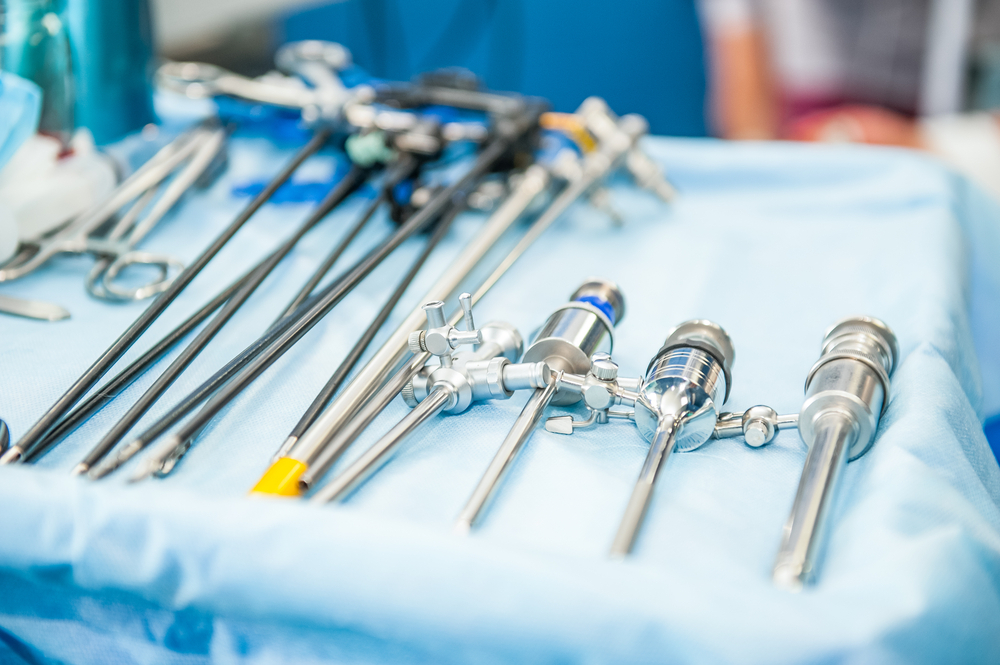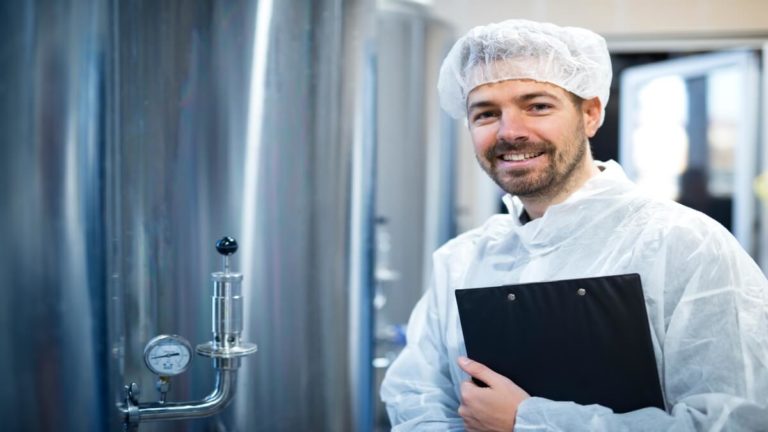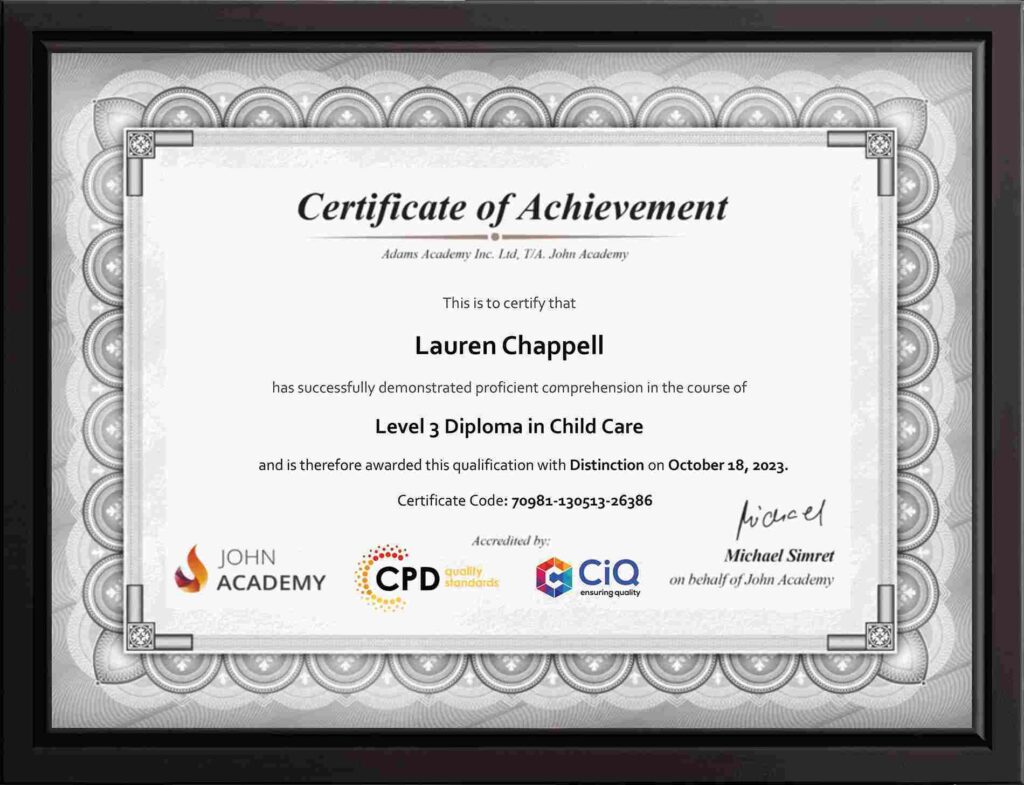
Just graduated from high school & thinking of working in the fast-growing healthcare sector? But also at the same time, you don’t want close patient contact? Then you should consider a career as a Sterile Processing Technician. It offers you plenty of upward mobility, resilience work schedule & fast entrance into the medical industry.
When we think of the contributors to our healthcare system, we rarely think of any other dedicated health professionals other than doctors and nurses. It is largely because the rest of them mostly works from behind the scene and rarely in direct contact with patients.
The position might seem mysterious to you, because they work behind the scenes and are unsung heroes of the health industry
In this article, we will have a look at this role and the duties expected of a sterile processing technician. We will shed some light on how they go on to continue providing such essential service out of the limelight.
And for those who are interested in venturing into this profession, this article will also let you know about how to become a sterile processing technician in the UK.
"Although my job is behind the scenes, I get a huge sense of satisfaction knowing that I'm playing a crucial role in the hospital, doing something vital for patient care."
- Gemma Gatchaliam (A day in the life of a sterile services technician)
Table of Contents
What is Sterile Processing?
Some of the tools and instruments used in medical procedures, such as utensils, endoscopes, scalpel handles, orthopaedic drills, instruments used in dental procedures or other surgeries are reusable.
But since they undergo a previous procedure and may be in contact with pus, blood, dirt or any foreign particles, they need to be sterilised and decontaminated. Otherwise, the next patient or human interaction with the tools might lead to serious complications.
What really is sterile processing technician?
If you just recently heard about this position, you may be wondering what exactly do the people of this profession do? They have a crucial role in warding off infection by sterilising, washing, processing, gathering, preserving, and distributing medical stocks.

It is one of the most significant positions in the healthcare industry. Although you’ll be working in ‘behind the scenes’, your role is vital for patient care.
Based on places and job specifications, the title of this position can be different yet similar to each other. Alternative names for this position are:
- Certified registered central service technician
- Sterile processing and distribution technician
- Sterilisation technician
- Sterile instrument technician
- Medical instrument technician
- Central sterile technician
- Central service professional
What are the Duties of a Sterile Processing Technicians?
As mentioned above, sterile processing technicians are often called and recognised by other terms.
Regardless of what you will be called, your responsibility is to ensure 100% sterilisation of the reusable medical equipment and prevent the spread of infection. From acquiring the contaminated device and instruments for sterilising to delivering them for reuse.
Aside from these, you will be also responsible for some other tasks as well.
Your day would possibly begin with packaging or transporting sterilised equipment. When devices come in, you’ll have easy equipment in an autoclave and take a look at gear for damage.
It’s no longer all about cleansing though: Throughout the day, you’ll report the whole thing you do and maintain the tune of any equipment deliveries you make. Only then can the gear be allotted to examination halls and operation theatres.
Typical Job Description of a Sterile Processing Technician
The following duties are usually expected to be performed by a sterile processing technician-
- Decontamination and sterilisation of instruments and types of equipment following standard procedure.
- Preparing and assembling sterilised surgical instruments, packaging and supplying them to the concerned department
- Assembling different surgical procedure trays according to different surgical procedures.
- Inspecting and verifying that all equipment is accounted for and functioning properly.
- Ensuring the repairment or replacement of defective instruments
- Good understanding of the manual and mechanical decontamination processes, such as hand wash, autoclave, ultrasonic cleaner, scope washer, cart washer and the ability to use them appropriately.
- Managing inventory of supplies and materials to including documenting usage, issuing, receiving and other actions manually or digitally.
- Monitoring sterilisation and decontamination facility and storage and assist in their maintenance.
-
Understanding and following established policies, maintaining health and environmental safety protocols.
Why Should You Pursue a Career as a Sterile Processing Technician?

I’ll give you five reasons!
1. Get into the healthcare sector easily
You don’t have to do years of medical studies to work as a professional in the healthcare industry. The job doesn’t demand extensive formal education and the training and certifications are rather cost-effective than other medical roles.
2. Flexibility with work
The skills and knowledge of a sterile processing technician have high demand in any healthcare facilities. Basically, wherever patients are seeking treatment, sterile processing technician has a role to play.
With placement opportunities across the wide-ranging health and care spectrum, you would be able to find a job in a location of your choosing. The medical facilities, clinics, dental and surgical establishments are spread across different counties, and they are always in need of someone with your skill sets on board. You could also have more flexibility with working hours, although, such arrangement varies based on facilities.
3. A wide range of opportunities to grow as a healthcare professional
With right training, dedication and your aspiration, you can move up the ladder to a managerial or supervisory role. You can also explore your option as an endoscope or surgical technician with some advanced training in the fields.
With adequate practical experience and knowledge under your belt, you can look for opportunities to work abroad or run your own training centre to train sterile processing technicians.
4. Critical role in ensuring health and safety
“As a caring person I've always wanted to do a job that made a real difference”
- Gemma Gatchaliam (A day in the life of a sterile services technician)
You should already know by now that as a sterile processing technician you won’t have much direct interaction with patients. But you are a crucial cog in their successful recovery as your job entails you to do so.
Isn’t it a great feeling to contribute to some goodness in people’s life at the same time getting paid for it?
5. Join a steady, booming workforce
By joining as a professional in one the fastest-growing industry in the UK, you will find a steady working condition with a large community of health service workforce. Health Education England has revealed that the health service professionals will need to increase by 190,000 by 2027 to deal with the increasing illness rates.
How Do You Become a Sterile Processing Technician?
It is possible to become a decontamination technician in a few different ways. By enrolling into a training program, apprenticeship with on the job training, direct application or even an online course can open up the door into this profession for you.
But, whatever is your academic path, you have to fulfil some criteria and gain some essential training and skills to excel in a career as a sterile processing technician.
Qualifications Required to Be Sterile Processing Technician
It is possible to become a decontamination technician in a few different ways. By enrolling into a training program, apprenticeship with on the job training, direct application or even an online course can open up the door into this profession for you.
But, whatever is your academic path, you have to fulfil some criteria and gain some essential training and skills to excel in a career as a sterile processing technician.
Physical Fitness
As you would be doing some manual and hands-on tasks, it helps if you have good physical fitness. Good eyesight (with or without glasses) is expected due to the nature of the job.
Learn more about improving your health and staying fit.
Academic Qualification
Although there are no formal qualifications for entrance into this profession, however, it increases your opportunities if you have at least 4 or 5 GCSE (A*-C) in English, Maths and Science, or equivalent qualifications. Also, a college degree in a relevant course will also help with your training and boost your career progression into a management role faster.
Apprenticeship
You can apply for internship programs for healthcare science intermediate or higher apprenticeships.
These apprenticeships are a combination of practical training on the job with theoretical study. You will have the opportunity to work alongside experienced professional and acquire specific skills.
Check this apprenticeship guide for more information.
Volunteering for experience
You can volunteer at the NHS or any other private facility to get some work experience. This will help you get into an apprenticeship position or direct qualification for a job.
IDSc Technical Certificate and Membership
Upon completing the apprenticeship, an Institute of Decontamination Sciences (IDSc) Technical Certificate or NVQ 3 Decontamination or equivalent level of knowledge and experience will help you enter into an NHS facility as a technician.
The Institute of Decontamination Sciences provides training and facilitates programs for professional development in the decontamination service sector. Joining them with membership will also help you get acquaintance with professionals in the field to learn from.
Online Training and Sterile Processing Technician Certification
Working in a sterile service profession requires knowledge of medical terminology, sterilisation methods, infection control and staying up to date about different aspects of the trade.
There are dedicated online courses available to provide the knowledge and skills required to be a sterile service technician. These courses are developed by industry experts and contain necessary technical information in a step-by-step process.
Since the training is provided online, it is easily accessible from any device so you can learn at your own pace. In addition to that, these courses are endorsed by CiQ and certified by CPD Qualifications Standards.
Even if you are a working professional, you are required to proactively develop and maintain technical knowledge. This professional sterile processing technician certification will boost your career to progress further in the healthcare sector.
6 Essential Skills Required to Become a Sterile Processing Technician
1. Personal Hygiene
You don’t need to be a sterile technician to maintain proper personal hygiene, it should be a common practice regardless of your profession. But you do need to understand the importance of hygiene practices in this job.
Many people’s well-being is at your hand and you have to ensure you emphasise on the basic personal hygiene practices at any cost. They are also crucial for the wellness of your own physical and mental wellness.
2. Teamwork
“I am very lucky as my colleagues are amazing – I am part of a team of 10, and we all get on really well.”
- Gemma Gatchaliam (A day in the life of a sterile services technician)
As a sterile processing technician, you would have to collaborate with several other departments, as well as yours. The whole process is a combined effort, from receiving the contaminated instruments, processing them for decontamination, packaging and finally to deliver them to concerned units. The ultimate goal of this collaboration is to provide smooth and safe service to the patients undergoing treatments.

3. Communication
Clarity in command and thorough instruction is essential for this job. As you would be responsible for patients’ safety and successful treatment to a great extent. As stressed in the above sections, the decontamination service is not a one-person job, clear communication between different agencies plays a key role in the effective management of the sterile processing service.
Inability to do so can have a boomerang effect.
For instance, imagine a patient getting admitted to the hospital to get treated for a mild disease. But he had to return home with a serious one, caused by a contaminated utensil used for a simple procedure. All these because of an unintentional miscommunication!
What a disaster, right? You could lose your job but the patient might lose his life!
4. Time management
Timeliness will get you far in any trade. But the ability to manage your time productively and deliver in time is another deal-breaker skill required in decontamination service. You will be under a deadline because the concerned health service professionals would be waiting for their treatment gears. And patients seeking treatment on their queue.
5. Attention to detail
It is a no-brainer that you will have to develop a pair of a keen eye. It’s not just about the physical ability, rather the mindfulness while on a service job.
Albeit, you cannot detect the microbial contamination with naked eyes, but you can ensure you do your best using the decontamination tools that there is none and the equipment are functional for reuse.
6. Computer skills
Apart from that, you should also have some basic computing skills. You would have to read digital measurements and do both online and offline reporting in most treatment facilities.
Sound knowledge of basic computing such as MS Office Suite will make your progression to a higher management position easier.
Some other skills that can benefit are as follows:
- consumer provider skills
- the capability to work on your own
- the capacity to take delivery of criticism and work nicely underneath pressure
- sensitivity and understanding
Read about 20 Essential Skills That Employers Are Looking For In 2024.
Pay and Career Growth
Based on a report by the Economic Research Institute, the average base salary for a Central Service Professional is approximately £12 for every working hour.
An employee of this job earns about £26,000 per year in the United Kingdom.And the salary potential is expected to be around £28,000 by 2025.

As a sterile processing expert, chances range the extent that your desire does. With the correct attitude and career goals, you could rank up to be a sterile processing manager, sterile compounding pharmacy technician, supervisor, assistant manager, service manager, head of the department or general health service management.
Progression in the sterilisation field gives you more than a simple glance at different open doors in the clinical network. And you may find that you need to explore open doors as an endoscope technician or surgical technician.
What You Willl Learn from Sterile Processing Professional Courses
- Sterilisation methods
- Surgical terminology
- Infection control
- Human anatomy
- Microbiology
- Surgical instrumentation
- Safety and danger managing
In addition to lecture room time, you’ll be required to fulfil a medical internship to obtain some real experience. When making use of this job, your schooling and experience will set you aside from inexperienced candidates.
“As my career develops, I hope to stay in healthcare and continue to help people.”
- Gemma Gatchaliam (A day in the life of a sterile services technician)
Further down the road, as an experienced manager, you will be able to get a role in general health service management.
There could be opportunities to work abroad, or in training and research depending on how you want to progress in your career.
Now, it's time to act!
Despite the “behind the scene” nature of this profession, exploring your option to become a sterile processing technician is the first step towards an exciting career in the healthcare field.
Whether you are recent graduate or you’re looking for a new career, now that you know what this job entails, time to act on this knowledge and start your career as a healthcare professional in this rewarding role.
To get further information, you may visit the following websites-
Institute of Decontamination Sciences (IDSc) | NHS Careers | Step into NHS | National Careers UK
Read the story of Gemma Gatchaliam, a sterile processing professional:
A Day in the Life of a Sterile Services Technician (by Gemma Gatchaliam) published in The Guardian.
Read more blogs
- Seven Technologies for Small Businesses to Improve Workflow and Propel Customer Service
- 9 High-Demand Skills That Can Help Fast-Track Your Career in the Digital Economy
- 12 Beneficial Assignment Writing Tips for University Students
- What Can You Cook From Frozen?
- 7 Tips for Honing Your Photography Skills
- An Introverted Student’s Guide to Public Speaking
- The Importance of Learning English in Kindergarten: 10 Benefits for Young Learners
- What Are The 7 Steps Of Handwashing?
- The Ultimate Checklist for Your Overseas Education Adventure
- 5 Ways to Find Relevant Studies for your Research Paper




